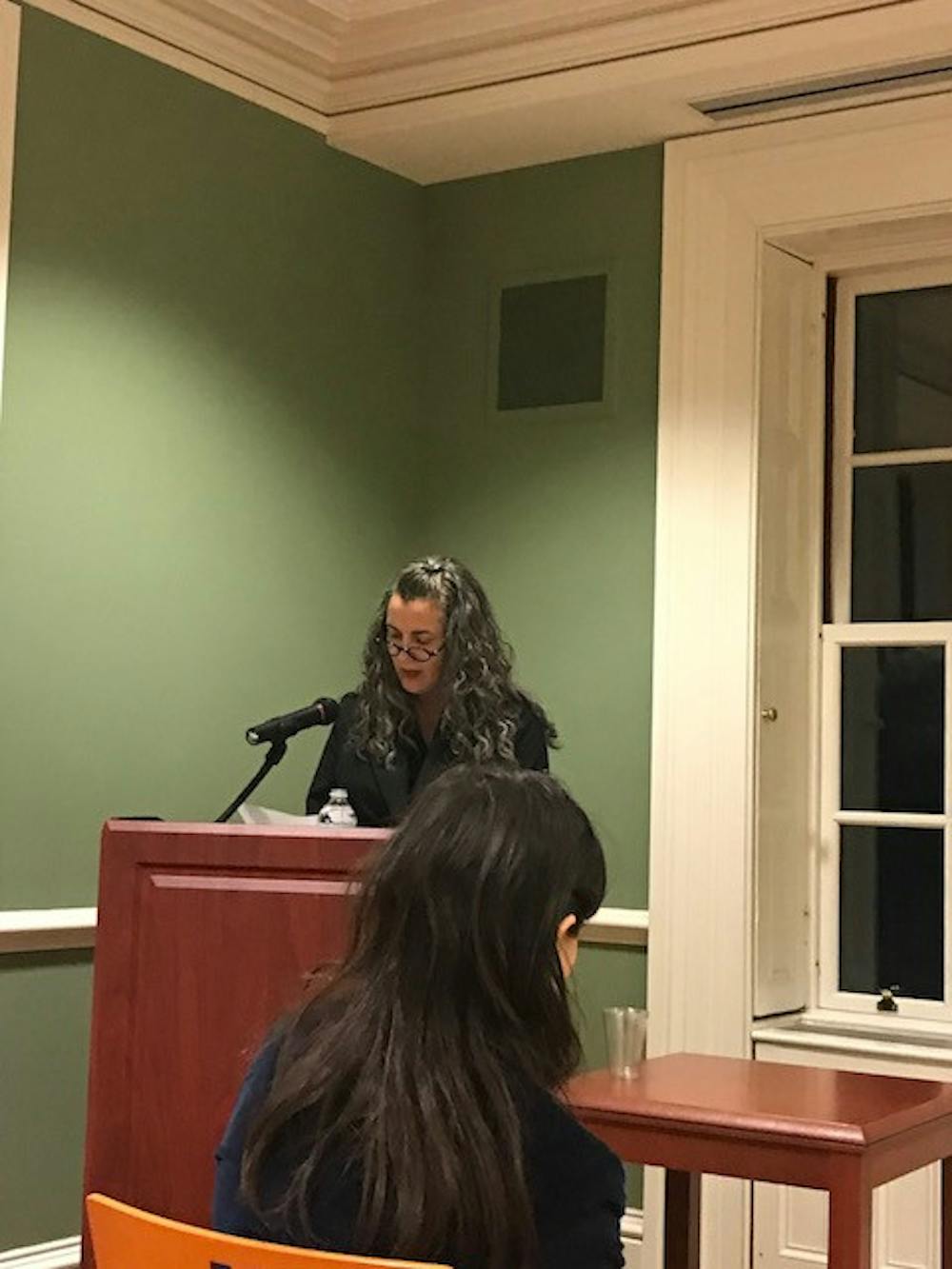Gayle Salamon, professor of English and Gender and Sexuality Studies at Princeton University, visited the University’s English department yesterday to share her research on the relationship between gender identity and sexual orientation in the American judiciary system.
Ada Smailbegovic, assistant professor of English, opened the talk by introducing Salamon as a winner of the Lambda Literary Award in 2011 and the author of “The Life and Death of Latisha King: A Critical Phenomenology of Transphobia,” which was published in 2018.
After the brief opening, the microphone was passed over to Salamon, who began by talking about her latest work investigating the trial on the murder of Latisha King, a 15-year-old transgender student who was shot by a fellow student in 2008. Previously referred to as Larry King throughout the majority of the murder trial, evidence later revealed that King came out as trans — renaming herself Latisha King — moments before she was shot. As Salamon closely followed progress of this trial, she explained that her aim was to “carefully study the misrecognition at the heart of the Latisha case” and how “gender identity was misread as sexual identity.”
Salamon then discussed Supreme Court cases involving gay and trans employment discrimination — cases like R.G. & G.R. Harris Funeral Homes Inc. v. Equal Employment Opportunity Commission, which involved the unlawful termination of transgender funeral home employee Aimee Stephens — to problematize how sexual orientation was misconstrued as gender identity in legal contexts. Salamon argued that many “Supreme Court oral arguments and decisions grapple quite a bit with the hypothetical.”
“Trans identity is so often used as a hypothetical — a philosophical problem of logic — (so) the law fails to recognize the ‘phenomenological living’ of trans people,” she explained, adding that trans people have “actual bodies and lives which have long been integrated in the social fabric in a non-cataclysmic manner.”
Noah Brooksher GS, a third-year PhD English student, was drawn to the “theoretical and practical” relation of sexual and gender identity in the talk. Salamon’s use of “a phenomenological method to talk about trans experience under the law is really unique and compelling,” he elaborated.
During the question-and-answer segment, Salamon acknowledged changes to differentiating gender and sexual identification in the legal system.
“One of the changes is that some of the justices knew the word cisgender, some of the justices knew some trans terminology and (had) some more cultural familiarity with trans-ness,” she said. But she warned that although recognition and awareness of trans lives has increased exponentially over the past decade, so has violence against trans people.
“It’s really heartening to see these cases coming to court, but also disheartening that the exact same logic is used in them, which is that a trans woman is just a man pretending to be a woman” she said.





